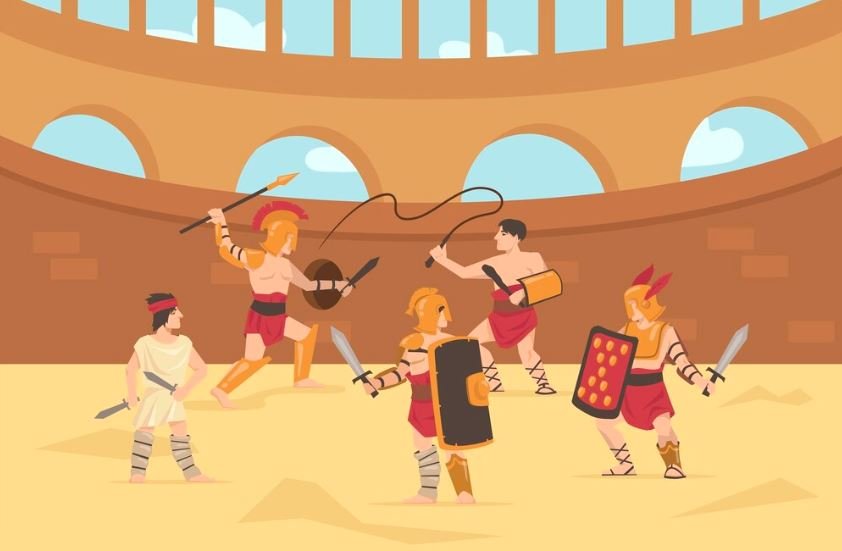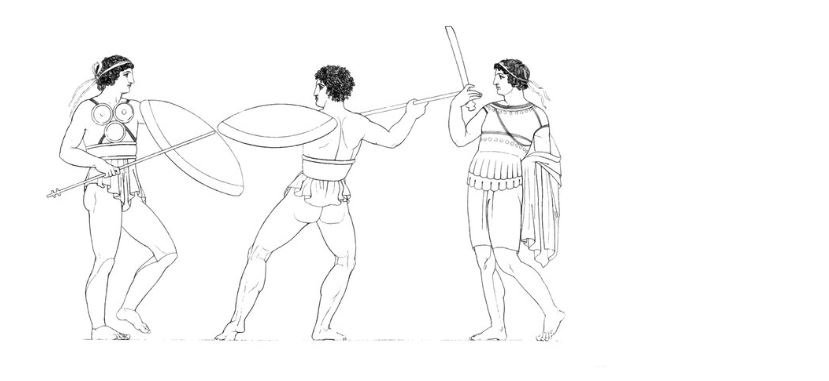One may think of the activities that formed ancient societies, where power, endurance, and tactics were essential for survival. Such sports were nowhere close to mere entertainment; to put it bluntly, they were and always will be the essence of life itself. Now, let’s look deeper into the domain of lost sports and seek the answer as to why they deserve to be brought back.
The Rich History of Ancient Sports
There’s no denying that sports in the past were much more complex and diverse than they are now. Ancient civilizations were deeply rooted in religion and values. For instance, the Olympics were religiously charged for the Greeks and should not be confused with mere sports, as they were a tribute to the god Zeus. If we look back to Rome, gladiatorial events were much more than just entertainment for the citizens. They were a means to enforce power and authority.
In China, Cuju (modern soccer) was considered entertainment for the royal courts and military training. Even today, it can be interesting to learn about ancient sports. People can use the Melbet download app to explore a betting world inspired by traditional sports. Enough evidence supports that sports were at the heart of ancient civilization.

Why Did Ancient Sports Go Extinct?
The sports practiced during ancient times did not die out in the blink of an eye. It took time. Cultural transformation, modernization, and shifting values contributed to placing playing sports together towards the bottom of a priority list. One of the reasons many did not make it through was:
- Cultural suppression: Obtaining an empire through war many times meant imposing political traditions.
- Modernization: The Industrial Revolution has caused people to gather interest in newer forms of leisure.
- Religious influence: Sorcery and savagery-related games were deemed unworthy and banned.
With time, ancient games started diminishing, and more modern versions began surfacing, but that leaves one wanting the reminiscences that the former used to provide.
The Fight To Reestablish Banned Sports
Revitalizing ancient sports is not merely keeping one’s history alive; it is preserving civilization and giving people of modern times something astonishing. Communities also leverage modern platforms like Melbet Insta Bangladesh to spark interest in these games and engage broader audiences. People and specific communities around the globe are tapping their vision to bring these types of sports back into the world through a mixture of education, events, and research. The outcomes are very intriguing indeed.
The Return of Pankration
Pankration, a martial art combining wrestling and boxing developed in Ancient Greece, will be another sport people love. People seem to enjoy what the military seems to want. It’s a raw sort of competitive fighting, but Pankration commands strength and skill to compete and win.
The revivals also include competitions and displays at historical festivals. Recreation historians and archaeologists have assisted in reconstructing techniques described in ancient texts and sculptures. Pankration is exciting for athletes and the audience because it relates to when warriors were worshiped.
Kukeri’s Dance as Sport
Kukeri’s Dance in Bulgaria is not merely a performance but also a rich narrative—a relic steeped in ancient origins. Its roots are in paganism, and Kukeri singers don mystical costumes and masks to dispel evil and call for life and prosperity. This cultural value is now being further developed into something more sport-like.
Kukeri, which many dance and carnival enthusiasts hope will become an Olympic sport, is already proving popular at the events that showcase it. The event’s novelty lies in the contestants competing for originality, costumes, and performance accuracy. However, the traditional aspect remains, only now, with the progress of competitive activity. Kukeri has also become a powerful addition to the other rituals and practices of the ancient that are alive today.

Cultural Importance of Reintroduced Sports
Old sports are brought back not for fun but to provide a glimpse into history. History can pack memories into games; one such ancient game is the Ulamathe, a Mesoamerican ballgame. This ancient game is considered a fusion of life and death. It helps us understand the worldview of ancient civilizations, which is a fascinating prospect.
Restoring such sports helps communities reconnect to their rich heritage. Pankration tournaments or Kukeri events are not just fun for the people or the community; they also propagate ancient civilization and its culture. This is an excellent opportunity for the younger generations, who so easily forget their past, while simultaneously preventing the older generation’s tales from evaporating.
Preserving Traditions From the Ancient Era
Restoring old sports and games helps to preserve our historical past. The renewed customs bring back elements from our past to share historic accounts of famous people from their eras. Human history proves that competition and culture have always remained fundamental in our society.